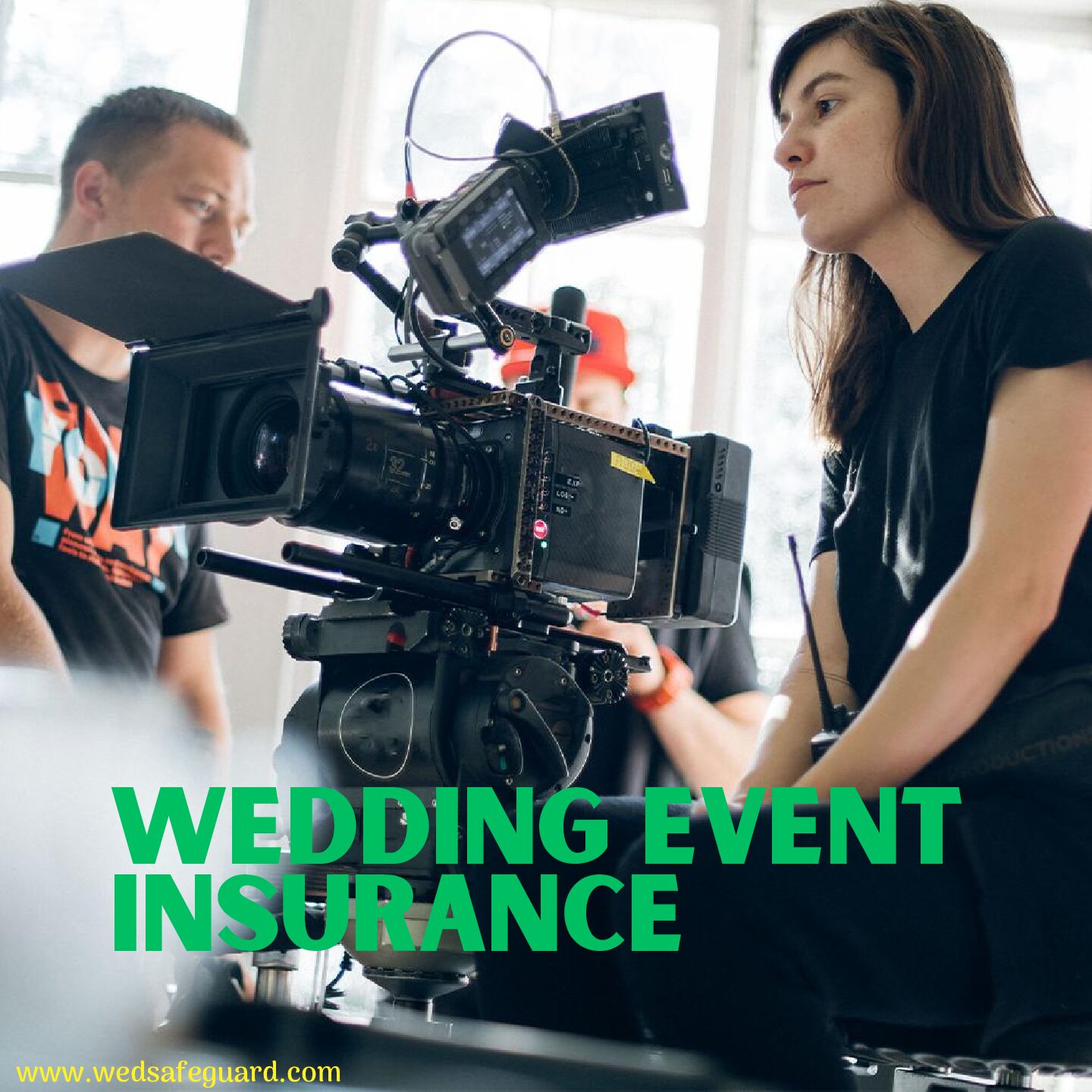Wedding videography involves capturing the special moments of a wedding day.
However, mishaps can lead to financial troubles. Wedding videographer insurance helps protect against these risks.
It covers various issues, allowing videographers to focus on their work and create memorable experiences for clients without worrying about financial setbacks.
wedding event2Wedding Videographer Insurance
Videographers love capturing the heartfelt moments of a couple’s big day. However, there are risks like equipment damage or cancellations that can harm your business.
Wedding videographer insurance is your safety net, giving you peace of mind to focus on your work.
This guide covers what the insurance is, its benefits, costs, what it covers, and how you’re compensated for unexpected issues
Benefits of Wedding Videographer Insurance
Financial Protection: Insurance covers accidental damage to a venue’s property caused by your equipment, saving you from paying for repairs or replacements.
Peace of Mind: Being insured lets you concentrate on capturing moments without worrying about financial consequences. This leads to a calmer, more professional approach during weddings.
Client Confidence: Insurance shows professionalism and builds trust with clients.
It assures them that you can manage unexpected issues, making them feel secure on their special day.
Venue Requirements: Wedding venues often ask vendors for liability insurance.
Wedding videographer insurance helps you meet these requirements and book more gigs.
Equipment Coverage: Your valuable cameras, lenses, and software are crucial for your work.
Insurance can cover these items if they’re damaged, stolen, or lost during a wedding shoot
Understanding Premiums
Coverage Limits: Opting for higher coverage limits increases your premium for general liability and equipment protection.
Experience: More experienced videographers may pay slightly less as they’re seen as lower risk.
Location: Insurance costs can differ based on where you’re located.
Event Frequency: Getting insurance for single weddings is usually cheaper than annual coverage.
Number of Shooters: Policies covering extra team members may have a slightly higher premium.
Breakdown of Coverage
General Liability Insurance (GL): This covers you from claims if someone gets injured or their property gets damaged due to your work.
For example, if a guest trips over your gear and gets hurt, GL insurance can pay for their medical bills.
Errors and Omissions Insurance (E&O): Also called professional liability insurance, E&O coverage protects you from claims of negligence.
If a couple isn’t happy with the final video and sues, E&O insurance can cover legal expenses.
Equipment Coverage: This protects your cameras, lenses, drones (if you use them), and editing gear from damage, theft, or loss during weddings or while transporting them.
It covers both owned and rented equipment.
Business Interruption Coverage: This compensates for lost income if you can’t complete a wedding videography contract because of an unexpected event like illness or injury that stops you from working.
Handling Eventualities
Equipment Damage: If your camera breaks because it’s dropped, gets wet, or experiences a power surge at a wedding, your insurance’s equipment coverage can help. Here’s what happens:
Report Damage: Contact your insurance right away and give details like what happened, estimated repair cost, and proof of purchase.
Repair or Replacement: If your claim is approved, the insurance will arrange repairs or give you a replacement based on the policy. This gets you back to work quickly.
Equipment Theft: Losing a camera or important gear to theft can be tough. Here’s what to do:
- Report to Police: Notify the police and get a report.
- Tell Your Insurance: Inform your insurance with details and the police report.
- Get Reimbursed: The insurance will investigate and reimburse you based on your policy and depreciation.
Accidents can vary from small mishaps to significant incidents affecting your ability to complete a contract. Let’s look at two situations:
- Minor Accident (No Injury): If you damage a minor camera part while shooting, you might pay for repairs yourself. But if the cost surpasses your policy’s deductible, you can claim reimbursement.
- Major Accident (Injury): m If a severe accident stops you from filming due to injury, business interruption coverage can help. It compensates for lost income from the
- issed shoot. Here’s what to do:
Get Medical Help: First, prioritize getting the medical attention you need for your injuries.
Tell Your Client: Inform the couple about the accident and your status. You may need to recommend another videographer from your network if your condition is serious.
Claim Insuce:ran Submit documents of your injury and income loss due to the cancelled shoot to your insurance. If approved, you’ll get compensation based on your coverage limits
